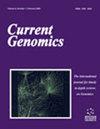Mitochondrial Lipid Metabolism Genes as Diagnostic and Prognostic Indicators in Hepatocellular Carcinoma
IF 1.4
4区 生物学
Q4 BIOCHEMISTRY & MOLECULAR BIOLOGY
引用次数: 0
Abstract
Background: Due to the heterogeneity of Hepatocellular carcinoma (HCC), there is an urgent need for reliable diagnosis and prognosis. Mitochondria-mediated abnormal lipid metabolism affects the occurrence and progression of HCC. Objective: This study aims to investigate the potential of mitochondrial lipid metabolism (MTLM) genes as diagnostic and independent prognostic biomarkers for HCC. Methods: MTLM genes were screened from the Gene Expression Omnibus (GEO) and Gene Set Enrichment Analysis (GSEA) databases, followed by an evaluation of their diagnostic values in both The Cancer Genome Atlas Program (TCGA) and the Affiliated Cancer Hospital of Guangxi Medical University (GXMU) cohort. The TCGA dataset was utilized to construct a gene signature and investigate the prognostic significance, immune infiltration, and copy number alterations. The validity of the prognostic signature was confirmed through GEO, International Cancer Genome Consortium (ICGC), and GXMU cohorts. Results: The diagnostic receiver operating characteristic (ROC) curve revealed that eight MTLM genes have excellent diagnostic of HCC. A prognostic signature comprising 5 MTLM genes with robust predictive value was constructed using the lasso regression algorithm based on TCGA data. The results of the Stepwise regression model showed that the combination of signature and routine clinical parameters had a higher area under the curve (AUC) compared to a single risk score. Further, a nomogram was constructed to predict the survival probability of HCC, and the calibration curves demonstrated a perfect predictive ability. Finally, the risk score also unveiled the different immune and mutation statuses between the two different risk groups. Conclusion: MTLT-related genes may serve as diagnostic and prognostic biomarkers for HCC as well as novel therapeutic targets, which may be beneficial for facilitating further understanding the molecular pathogenesis and providing potential therapeutic strategies for HCC.线粒体脂质代谢基因作为肝细胞癌的诊断和预后指标
背景:由于肝细胞癌(HCC)的异质性,迫切需要可靠的诊断和预后。线粒体介导的脂质代谢异常影响HCC的发生和发展。目的:本研究旨在探讨线粒体脂质代谢(MTLM)基因作为HCC诊断和独立预后生物标志物的潜力。方法:从基因表达综合(GEO)和基因集富集分析(GSEA)数据库中筛选MTLM基因,并在肿瘤基因组图谱计划(TCGA)和广西医科大学附属肿瘤医院(GXMU)队列中评估其诊断价值。利用TCGA数据集构建基因标记,并研究预后意义、免疫浸润和拷贝数改变。通过GEO、国际癌症基因组联盟(ICGC)和GXMU队列证实了预后特征的有效性。结果:诊断性受试者工作特征(ROC)曲线显示8个MTLM基因对HCC具有良好的诊断价值。基于TCGA数据,采用lasso回归算法构建了具有鲁棒预测值的5个MTLM基因的预后特征。逐步回归模型结果显示,与单一风险评分相比,特征与常规临床参数的组合具有更高的曲线下面积(AUC)。进一步构建了预测HCC生存概率的nomogram,校正曲线具有较好的预测能力。最后,风险评分还揭示了两个不同风险组之间不同的免疫和突变状态。结论:mtlt相关基因可作为HCC诊断和预后的生物标志物和新的治疗靶点,有助于进一步了解HCC的分子发病机制和提供潜在的治疗策略。
本文章由计算机程序翻译,如有差异,请以英文原文为准。
求助全文
约1分钟内获得全文
求助全文
来源期刊

Current Genomics
生物-生化与分子生物学
CiteScore
5.20
自引率
0.00%
发文量
29
审稿时长
>0 weeks
期刊介绍:
Current Genomics is a peer-reviewed journal that provides essential reading about the latest and most important developments in genome science and related fields of research. Systems biology, systems modeling, machine learning, network inference, bioinformatics, computational biology, epigenetics, single cell genomics, extracellular vesicles, quantitative biology, and synthetic biology for the study of evolution, development, maintenance, aging and that of human health, human diseases, clinical genomics and precision medicine are topics of particular interest. The journal covers plant genomics. The journal will not consider articles dealing with breeding and livestock.
Current Genomics publishes three types of articles including:
i) Research papers from internationally-recognized experts reporting on new and original data generated at the genome scale level. Position papers dealing with new or challenging methodological approaches, whether experimental or mathematical, are greatly welcome in this section.
ii) Authoritative and comprehensive full-length or mini reviews from widely recognized experts, covering the latest developments in genome science and related fields of research such as systems biology, statistics and machine learning, quantitative biology, and precision medicine. Proposals for mini-hot topics (2-3 review papers) and full hot topics (6-8 review papers) guest edited by internationally-recognized experts are welcome in this section. Hot topic proposals should not contain original data and they should contain articles originating from at least 2 different countries.
iii) Opinion papers from internationally recognized experts addressing contemporary questions and issues in the field of genome science and systems biology and basic and clinical research practices.
 求助内容:
求助内容: 应助结果提醒方式:
应助结果提醒方式:


